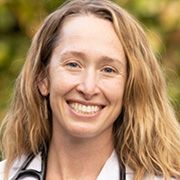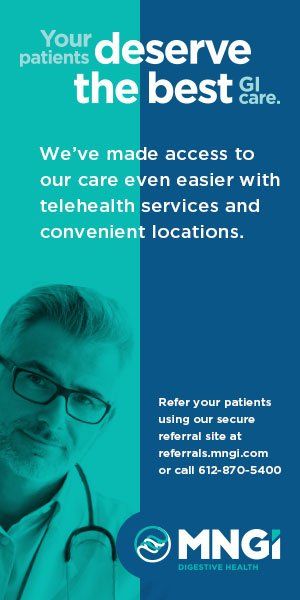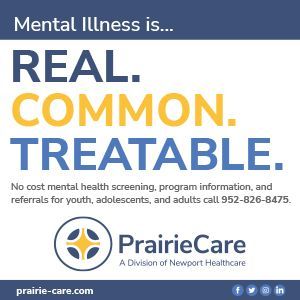Interview
A New Approach to Care for Older Women
Kendell M. Cannon, MD, chief medical officer at Herself Health
Please tell us about the mission of Herself Health.
Herself Health was founded in 2022 to provide value-based primary care to women over age 65 with a focus on helping women feel seen and heard as they age in a way that the current health care system does not provide. Herself Health spends longer with its patients, works to prevent issues from occurring rather than only seeing them when an issue arises and looks at the whole picture of a patient’s health and wellness, including mobility, mental health, social and behavioral health, the patient’s life journey and quality of life. We are utilizing a holistic approach that goes beyond labs, medication, imaging and more doctors. We’re also using our clinics as community centers. A major concern with this population is social isolation, so we’re working to bring women together in new ways. Herself Health is on a mission to ensure women 65 and over are properly cared for, listened to and supported through this next stage of their lives.
You conducted over 700 interviews with women 65 years and over to help focus your approach to providing care. What are some of the things you learned from this research?
Earlier this year we conducted these interviews, which showed a clear and significant need for comprehensive primary care services tailored to this demographic. The biggest takeaway is these women regularly encounter doctors who do not listen to their concerns and fail to prioritize their desires and wishes. This is a major issue as women in this age group are 33% more likely to be misdiagnosed than men, most medical geriatric research is done on men, and women face unique health challenges as they age. It’s also apparent that women face many social challenges as they age, but most senior care remains one-size-fits-all. Women in this group are in the midst of a loneliness epidemic, which can lead to mental health struggles and countless ignored health problems. Herself Health is focused on fostering community at our clinics in order to address this.
What are some examples of how providing care for older women is unique?
First and foremost, the majority of medical research on older adults is focused on men. Fundamentally, we do not have adequate data and research to develop appropriate and better care for this population. We know women are four times more likely than men to be diagnosed with osteoporosis, three times more likely than men to have autoimmune diseases such as arthritis, two times more likely than men to be diagnosed with Alzheimer’s, 43% less likely than men to receive a chronic heart disease diagnosis, 34% less likely to receive cardiac medication, 33% more likely to be misdiagnosed following a stroke and, shockingly, 33% more likely to be misdiagnosed than men. Herself Health is focused on approaching these challenges holistically and treating our patients accordingly.
The majority of medical research on older adults is focused on men.
Why did you decide to open your first several clinics in the Twin Cities?
We opened our first clinic in Highland Park in January 2023, our second in Crystal this September, and are opening our third later this year in South Minneapolis. There are many reasons Herself Health decided to go deep in the Twin Cities. First and foremost, there is a massive health care ecosystem in the region, which gives us the opportunity to attract amazing physicians and medical professionals excited about our unique approach to primary care. There is also a large population of women over 65. It’s a place where people care deeply about their communities and their neighbors. So, we believed our community-focused approach would truly resonate in this geography, and we’ve been thrilled to see that it has. Each of our clinics is designed also to serve as a community space, bringing older women together to socialize, learn and grow.
What have been some of the most unexpected things you have encountered in opening the clinic?
The number of women who share with our physicians and medical staff that they feel seen and heard for the first time in their health care journey is shocking but motivating. The Herself Health whole person approach—our focus on female care services designed to address health and wellness issues that impact women and understanding what matters to our patients via customized care plans, regular dialogue, and active listening—has already had a major impact on our patients. We’ve also been surprised at the number of patients who want to get involved with their community via our clinics. Women wanting to volunteer, participate in community events or simply use our community-building events for socializing and relationship building has really taken off.
And of course, the demand. We knew we had built a primary care service that was fundamentally different from anything ever available, but we didn’t know how long it would take us to attract patients. We’ve seen growing demand, so much so that we’ve opened three clinics in 2023, with more planned for 2024.
What kind of patient response have you received?
It’s been extraordinary. Patients sharing that they feel seen and heard for the first time ever, leaving their appointments with optimism and hope, saying they feel real trust with their care team. And clearly, word has been spreading, as demand continues to increase and we’re already filling up with patients for our two new clinic locations.
Because of this demand, we’re going to add additional clinics in 2024 in the Twin Cities region. But we’re also going to be expanding our digital and in-person offerings. We’ve had success in using virtual care for our patients for follow-up visits and those who live too far from the physical clinics for regular travel. So, we’re planning to grow this offering to ensure we can provide care to any patients in the region who may struggle with travel for one reason or another. We’re also expanding our community offerings. It has been so resonant with our patients that we are planning some amazing things in the coming months to bring the older women of the Twin Cities together in a meaningful way.
How are you addressing diversity, equity and inclusion issues?
We are focused on hiring physicians and medical professionals who are representative of the diversity of the Twin Cities and the patient population we serve. It’s essential that when a patient walks into a Herself Health clinic, she feels her needs are being met inclusively of her race, socioeconomic status, culture and overall life experience. Our goal is to ensure that every woman feels welcomed and comfortable at our clinics.
We’re also focused on ageism. Something we had not anticipated was our patients’ coming to us for employment opportunities. We’ve heard from several of them that they have struggled to find jobs given their age. We want to actively address ageism as an issue and incorporate women across the age spectrum into our team.
How and why would other physicians refer patients to you?
Many of our patients have multiple chronic conditions and require more time than the average primary care provider is able to allocate to individual patients. This can result in a variety of specialist referrals. We have the ability to provide care across a broad spectrum of issues and truly coordinate care with our multidisciplinary team. When you see patients who have as many specialists as they have organs, it’s time to have a specialized team bring all those things together and start treating the patient holistically. This is a common source of patients for us.
We see many women come in from gynecological practices. As women age out of that care in their post-menopausal period, women are often forgotten—as if their care is no different from a man’s after menopause. We often receive referrals from gynecology practices that want to ensure their patients are still being treated with a holistic and female-focused approach to care.
What can you tell us about your plans for the future?
We have launched our second clinic in Crystal, and our third clinic is coming to South Minneapolis on Lyndale Avenue in December. We’re planning several additional clinics in the Twin Cities in the coming 18 months. We are also planning a new market in 2024—a new state that hasn’t officially been announced yet. Our goal is to bring holistic, person-centered care to as many women over age 65 as we can! We’re working to scale our model responsibly by creating an education program to help train clinicians on women’s health, geriatrics, person-centered care and value-based care, given that there are so few programs devoted to these topics. We are really excited about helping women address social isolation and loneliness, as well as purpose and meaning. Making friends as you age is hard and we are doing research into how we can help to facilitate connections, friendships and even volunteering or work opportunities.
How are you using new technologies to improve patient care?
One example of a technology we’ve adopted is Ambience, a health care AI company. I’ve tested many AI and scribing technologies and this is the first one I’ve used that’s actually done what it claims and truly improved both the clinician and patient experience. Our clinicians are able to walk into a room with a patient, be fully present and engaged with her, and walk out of the room with the majority of their notes written out without ever having touched the computer. For patients, this means not having a doctor buried in their computer during their visit. While this may seem like a minor thing, it helps us to develop meaningful connections with our patients. It allows more room for eye contact, conversation, connection and trust. This goes a long way in helping our patients connect with their clinicians and importantly, feel seen and heard during their appointments.
How do you orient physicians to your unique approach to primary care?
Too many doctors do not learn about women’s health, person-centered care, geriatrics, or value-based care in medical school. When I was in medical school, I received an hour or two of non-maternal women’s health education. There was barely anything about women as they age. It’s as if once a woman is past menopause, suddenly, women and men are considered to exactly the same: old and less important. It’s truly a shame because the health care needs of older women are deserving of just as much specially focused care and attention as any other age group. We provide a comprehensive fellowship to train our clinicians to become experts in four areas: women’s health, person-centered care, geriatrics, and value-based care. This training will not only create a better clinic experience and better outcomes for our patients, but also give us the ability to build a truly dynamic and expert team of clinicians dedicated to the unique health needs of older women.
What are you looking for when hiring physicians and medical assistants?
There are three things we look for. First, women-centeredness. Do you want to provide the kind of care women over age 65 require? Do you listen, and I mean truly listen, to what the patient wants and needs? We are looking for collaborative clinicians who don’t think they’re the most important person in the room; our goal is to be able to empower our patients. Second, do you have risk tolerance? Much medical training teaches physicians the only answer is often to force or coerce someone to the ER when something is wrong. That’s not our approach. We work with patients to determine what their personal goals for care are, rather than treating every issue like it’s an emergency, which can cause more harm to the patient in the long run. Finally, we look for folks who want work-life balance. We believe that the best way to care for our patients is to make sure we’re caring for each other—that means that each team member should be thinking about their own mind, body, and soul and how they are caring for themselves. Our goal is to create the systems and support needed to ensure our clinical team is receiving the same degree of love and care that we provide patients.
Kendell M. Cannon, MD, is the chief medical officer at Herself Health. She is also a clinical assistant professor at the Stanford School of Medicine.
MORE STORIES IN THIS ISSUE
cover story one
The Minnesota CANDOR Act: Addressing adverse events
By Nels E. Dyste
cover story two
Unveiling the Future: Artificial Intelligence in Spine Surgery
By Omar Ramos, MD
















